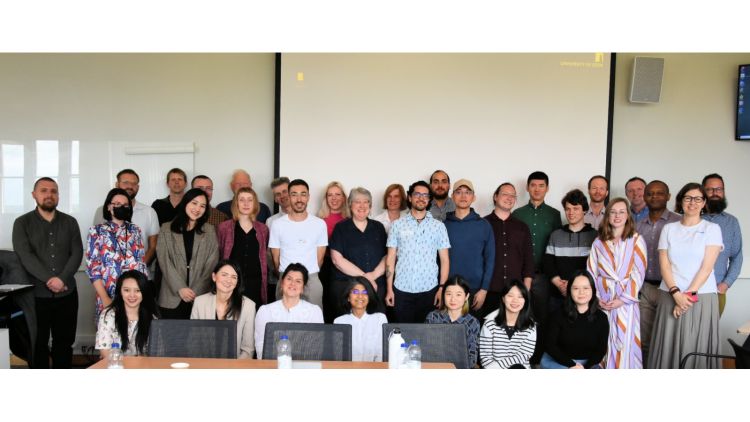Call for Papers: CERIC Doctoral Conference 2025

CERIC warmly invites postgraduate researchers at all stages to the 2025 CERIC Doctoral Conference ‘Sustainable Development and the Future of Work’ on Friday 23rd May, 2025, in a hybrid mode.
CERIC, based at the University of Leeds, is one of the largest interdisciplinary groups of social scientists working in the field of work and employment in the UK, and the Doctoral Conference has, for over a decade, provided a supportive and engaging environment for postgraduate researchers across the UK, and internationally, to share their work.
The concept and practice of sustainable development is exerting a profound impact on organizational strategies and policy making agendas, with labour markets continuing to change and evolve. The three core objectives of sustainable development—requirements for a green environment, promotion of economic growth, and advancement of social progress—are significantly influencing stakeholders in the labour market. Furthermore, as organizations seek to adapt to the demands of technological innovation for economic growth and environmental protection, new questions are raised about decent work and equality issues in diverse organizational contexts. Indeed, organizational adaptation to sustainable development presents both opportunities and challenges for participants in organizational behaviour and workplace practices. Therefore, we explore the theme of ‘Sustainable Development and the Future of Work’ to understand the changes and challenges facing the global labour market within the context of sustainable development and to focus on future trends.
We welcome abstracts from postgraduate researchers at all stages who wish to present their work either online or in person. The applicants are encouraged, but not limited, to submit abstracts for presentations covering aspects related to:
-
The impact of technology and economic growth on work, as well as the opportunities and challenges of technological development
-
The influence of sustainable environmental requirements on the labour market and employment relationship transformation
-
Inequalities, diversity, and inclusion within organizations (e.g., race, age, gender, sexual orientation/gender identity, class, migration, health)
-
The future of employment relations (e.g., the evolving role of labour unions, worker voice and representation, and collective bargaining)
-
Human resource management practices that help achieve/hinder sustainable development




